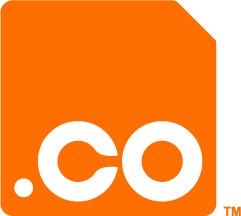Exclusive Interview with “.CO” CEO Juan Diego Calle with Robert Schoon latinpost.com
The internet is about to erupt with thousands of new domain name extensions, supplementing the familiar “.com” with new website address endings from “.company” to “.photography.” Juan Diego Calle, CEO of “.CO”, a preexisting domain focused on startups, tells LatinPost why he’s not scared of the sudden increase in competing web suffixes.
The Internet’s Coming Transformation
Until Feb. 4 of this year, the World Wide Web used 22 major suffixes to demarcate web addresses. Some are quite familiar, like .com, .edu, or the occasional .biz, which are technically called Generic Top Level Domains (gTLDs) by the Internet Corporation for Assigned Names and Numbers (ICANN), which is the non-profit group that keeps the domain name system. Others, called country code TLDs (ccTLDs), refer to sites in specific countries, like .dk for Denmark or .cn for China.
Responding to today’s growing global internet, and the corresponding need for more unique web addresses, starting on Feb. 4, ICANN will begin unleashing thousands of new gTLDs.
That’s great for new startups and websites that won’t need a 65 character web address to differentiate itself online from other “.com’s,” but it means more competition for existing web domains that were already taking on the dominance of .com, like Juan Diego Calle’s increasingly popular “.CO.”

.Co and the Old Paradigm
Calle’s .CO domain company was launched in 2010 after winning the rights to Colombia’s ICANN-assigned country domain, or ccTLD. Prior to Colombia’s decision to make its domain a home for upstart websites globally (and collect royalties for registrations), the .CO TLD had been run in a restricted manner by the Colombia-based University of the Andes since 1991, registering only Colombian websites with “.com.co” suffixes.
Calle’s company, www.go.co, has since taken Colombia’s .CO TLD global, while attempting to chip away at the monolithic “.com”. In three years, the company has attracted registrations from big companies like Google and Amazon, while focusing on providing startups with a simple, unique web address and membership services like networking and promotional opportunities. You might notice some of .CO’s high-tech startup members, like Angel List, social video service Vine, and recent Biz Stone startup, Jelly.co.
But .com’s dominance has mostly been unquestioned until now. “The biggest challenge we have on a day-to-day basis in the existing paradigm is the fact that I have to battle every day to combat… ‘the internet means .com,'” told Calle to LatinPost. “That preconceived notion and just the fact that it’s been ingrained in peoples’ brains – that when they go online they type in .com domains. And that makes our job of trying to position .CO very, very difficult.”
The New Paradigm: 1000’s of Competing TLDs
While ICANN’s expansion of gTLDs means thousands of new domain extensions competing with the 22 pre-established domains, including .CO, Calle explained why he’s looking forward to the new paradigm.
“In an entirely new paradigm where there are maybe thousands of companies or thousands of alternatives, trying to build bridges towards removing those preconceived notions — we are going to be that much more successful,” he said.
“We’re already starting to see the benefits of that,” continued Calle. He’s banking on the change in the average internet user’s mindset — away from expecting every address to end with either .com, .edu, .net, or .gov – to give .CO more visibility. “With all the advertising that we’re seeing for new top level domains, all the commentaries by the media that we’re starting to see… people are saying, ‘Okay: .CO? Oh yeah that’s one of the new ones, right?'”
Calle’s .CO, which has registered 1.6 million domain names in its three year run, is already seeing benefits from the attention ICANN’s internet expansion is getting. “We’re actually improving, on a month-to-month basis, our registration numbers — just because there’s additional awareness of the fact that it’s okay to build your website on something other than .com,” said Calle.
But what about .ninja? Do we really need that level of internet domain expansion? Calle’s reaction is essentially, why not?
“Looking at it very broadly, I see absolutely no reason for why the domain extension world would be regulated,” said Calle. “It should be completely unregulated.” Possibilities for confusion and competition aside, Calle sees ICANN’s liberalizing of domain extensions as a step in the right direction:
“You can think of it as this: You have the right of the ‘dot’ and the left of the ‘dot’,” Calle explained. “Everything to the left of the dot,” meaning websites’ addresses, “is completely unregulated. Yahoo.com, Google.com — you can do anything to the left of the dot,” he said. “I see no reason why those same rules shouldn’t apply to the right of the dot.” Read more
